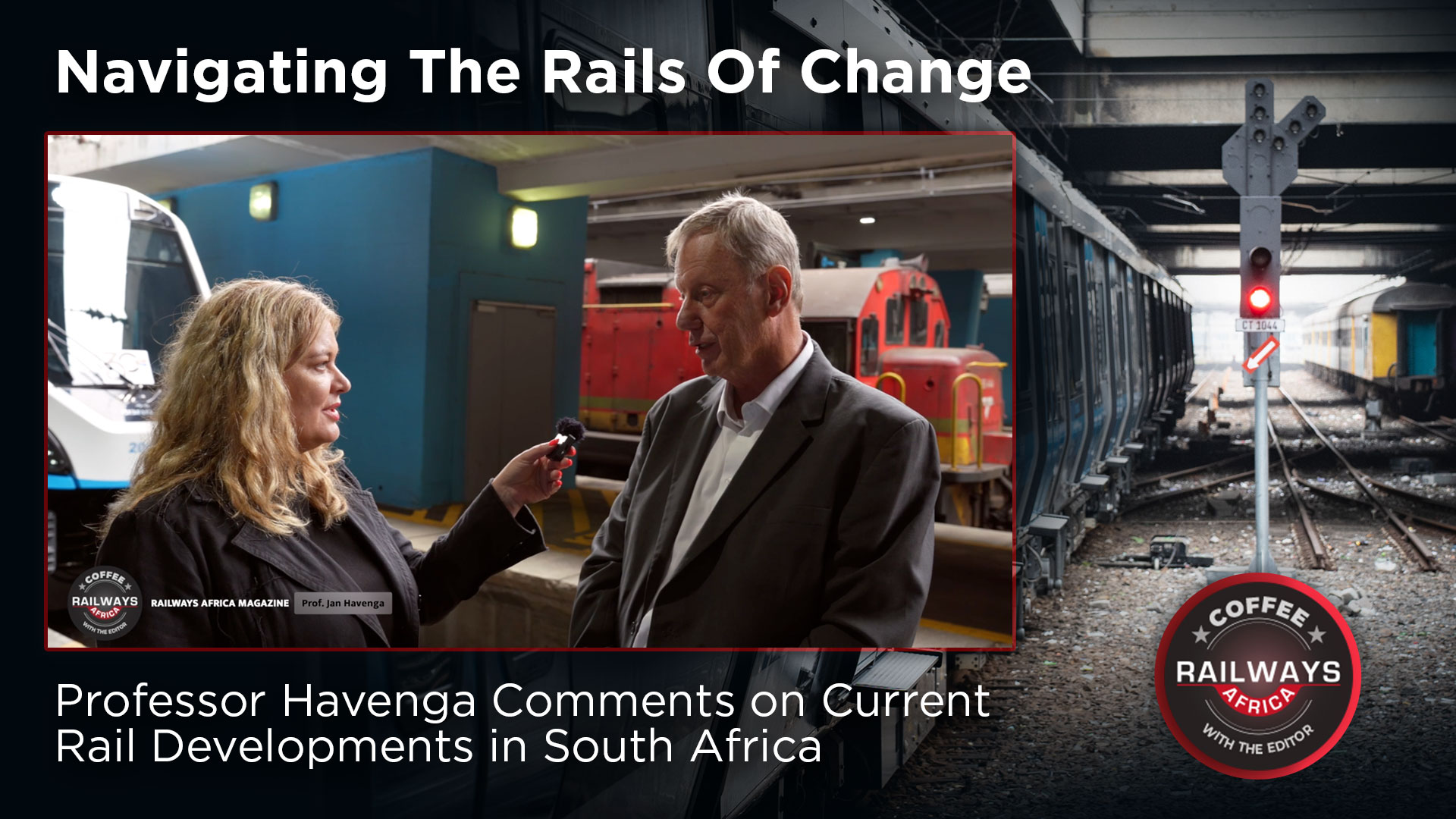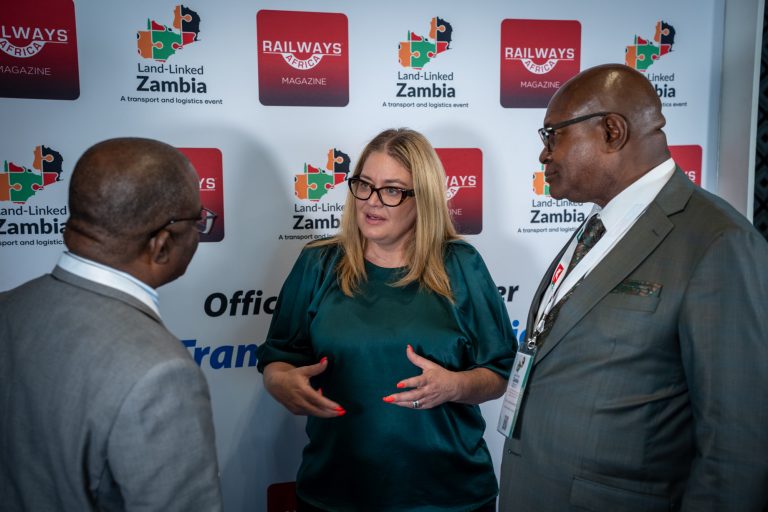DISCLAIMER: The views expressed by Professor Jan Havenga are his own and do not represent those of the Passenger Rail Agency of South Africa (PRASA), Transnet, or any other organisations mentioned in the interview.
Professor Jan Havenga, the newly appointed board member of PRASA, offered an insightful dialogue on current rail affairs in South Africa, during the celebration of the PRASA’s 200th train launch in Cape Town on 23 April 2024.
Havenga’s expertise in freight logistics will bring fresh perspectives to passenger rail transport. Despite his initial uncertainty regarding his appointment, the positive developments at PRASA took him by surprise, contrasting starkly with his prior work on a road-to-rail strategy for South Africa’s treasury, where he saw little hope for passenger services. He stated that at that time he felt that Europe was better off after the Second World War because it was bombed out; they rebuilt it from scratch.
Despite the low base from which PRASA is starting, Havenga acknowledged the hard work of the management team, led by CEO Hishaam Emeran. Their dedication has impressed him, especially considering the limited resources they have had at their disposal. Havenga believes that PRASA might be overreaching at this stage and should instead focus on working with what they have and optimising existing corridors.
An increase in passenger numbers has been a promising sign of recovery, highlighting a trend that is picking up in many respects. However, Havenga noted that sustaining these improvements would likely require government backing, as fare revenue alone cannot cover operational costs. He cited the cost of a trip from Fish Hoek to Cape Town, which is reasonably priced, similar to metro fares in cities like Delhi. Havenga notes that affordable transport is essential for mobilising our nation, people, and workforce, bolstering economic growth.
Havenga’s thoughts on Transnet and the current process underway relating to private sector participation and open access are extremely relevant, not only because of his involvement in the road-to-rail strategy or because he is a freight specialist but also because he was one of four people involved in the development of the Operation Vulindlela plan. Havenga has high praise for the new leadership appointments at Transnet. In his view, Michelle Phillips is a brilliant CEO, and Russell Baatjies, in his words, “Is a railway man I would take anywhere in the world and put him in charge of a railway. This guy knows what he’s doing.” However, the damage is so extensive that the government will have to step in.
The considerable damage inflicted on the freight rail sector over the years necessitates government intervention for repairs, Havenga argued, particularly concerning high access charges that have been suggested, which are due to financial necessity rather than choice. He explained that the infrastructure access charge if it were in perfect condition, should have been 50% of what it is now. Currently, it is overcharged by more than double and is not in good condition. There are many reasons for this, and it is not the fault of current management. For a straightforward comparison, consider an interlink travelling from Johannesburg to Cape Town; if charged the same access charge just to use the road, it would have to pay (numbers used as an example) R17,000. Currently, it pays about R4,000, which covers toll fees and the fuel levy. This is far too high and results from accumulated debt, not mismanagement. There are solutions available, but they require the government to intensify efforts and focus more on restructuring Transnet.
Havenga believes that the work that’s been done there is not good enough and it’s not fast enough. So, we have good people in charge, but they’re not getting help. No assistance whatsoever. The road-to-rail strategy fails there.
The ongoing delays in implementing open access for private operators are frustrating, a sentiment shared by Havenga, who predicts further setbacks due to the network’s current state and unanswered questions about Transnet’s restructuring. The current network statement lacks coherence, making the restructuring for open access unfeasible. This underscores the need for a comprehensive plan addressing network issues and Transnet’s debt restructuring before proceeding. The rushed issuance of the network statement, though compelled by treasury conditions, reflects the inadequacy of the current approach, akin to publishing a sales brochure for a dysfunctional system.
As for the production of the X’Trapolis Mega trains, Havenga spoke personally, not on behalf of PRASA, about the implications of cuts to government subsidies which could lead to production delays. Havenga argued strongly against cutting subsidies and production, stating that maintaining the production line and the upstream supply chain is vital for South Africa’s emerging economy.
In closing, Havenga emphasised the potential of exporting trains to the rest of Africa, which would significantly elevate South Africa’s status on the continent.


